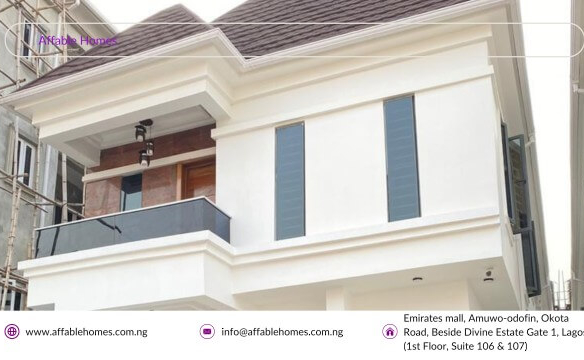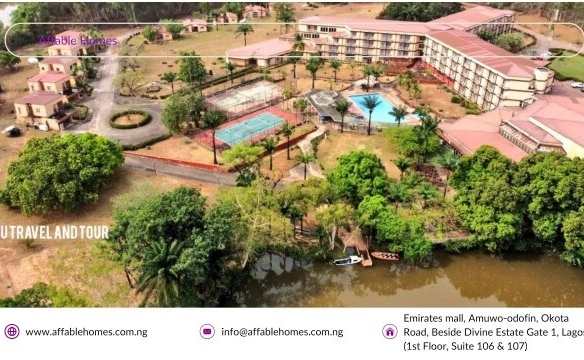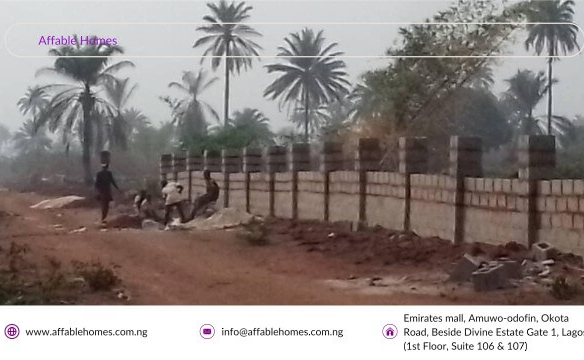Is there a way to calculate depreciation on your rental property in Nigeria? The answer is yes.
If you’re a landlord or real estate investor in Nigeria, you may have heard about depreciation. But then accounting terms can sound like a foreign language, yet understanding and leveraging property depreciation isn’t rocket science.
In this guide, we’ll break down everything you need to know about calculating depreciation on rental property in Nigeria to maximize your rental property’s profitability.
What is Depreciation?
Things wear out over time. This concept of wear and tear is the essence of calculating depreciation.
For rental properties, depreciation refers to the gradual loss of value in the building due to wear and tear, aging, or obsolescence.
Why is it Important to Calculate Depreciation on Your Rental Property in Nigeria?
Nigeria’s real estate sector is booming, but so are tax obligations. As property values in cities like Lagos, Abuja, and Port Harcourt continue to rise, landlords face increasing pressure to balance profitability with compliance.
Depreciation provides a legal and effective way to reduce your taxable income—making it a financial lifesaver.
In 2025, staying updated on depreciation rules is crucial. Nigerian tax laws, such as those under the Companies Income Tax Act (CITA), allow property owners to claim depreciation as an expense, reducing their taxable income.
Typically, buildings are depreciated at 10% per year, but keeping accurate records and following the right processes ensures you can maximize this benefit without falling foul of the Federal Inland Revenue Service (FIRS).
Also Read:
- Owerri as the Hospitality Capital of Nigeria – Opportunities for Real Estate
- Everything About the Awka Real Estate Investment Opportunities
- An Overview of Real Estate Investment Opportunities in Abakaliki
Step-by-Step Guide to Calculate Depreciation
Let’s simplify this process with actionable steps:
1. Determine the Property’s Cost Basis
Your property’s cost basis is the total amount you spent to acquire and prepare it for use. This includes:
- The purchase price
- Legal fees
- Survey fees
- Renovation or improvement costs (e.g., installing new plumbing or electrical systems)
The cost basis is important because it’s the starting point for all depreciation calculations. It represents the investment you’ve made in the asset, excluding non-depreciable components like land.
Example: If you purchased a rental property for ₦50,000,000 and spent an additional ₦5,000,000 on renovations, your total cost basis is ₦55,000,000.
2. Separate the Land Value from the Building Value
Depreciation applies only to the building, not the land. Only the building sitting on it depreciates.
Why? Because buildings, unlike land, are subject to physical and functional decline.
Over time, factors such as weather, usage, and maintenance needs reduce the value of a building—but land generally maintains or increases its value.
For instance, the soil on which your building stands doesn’t “wear out” from rain or sunshine in the same way a roof or plumbing system would.
This is why Nigerian tax laws—and those in most other countries—allow only buildings (and not land) to be depreciated.
Land is considered a stable, appreciating asset that retains its value, especially in prime locations.
To allocate values between land and building:
- Check your property purchase agreement. Many agreements specify the value of the land versus the building.
- If no breakdown is provided, hire a professional valuer to estimate the land-to-building ratio. In Nigeria, it’s common for land in prime locations to account for 30% or more of the total property value.
Example: If your ₦55,000,000 property has ₦20,000,000 allocated to land, the building value is ₦35,000,000.
3. Apply the Annual Depreciation Rate
Under Nigerian tax laws, buildings typically depreciate at 10% per year. The calculation is straightforward:
Depreciation Expense = Building Value × Depreciation Rate
Example: For a building worth ₦35,000,000:
₦35,000,000 × 10% = ₦3,500,000
You can deduct ₦3,500,000 from your taxable rental income annually.
4. Factor in Partial-Year Ownership
If you purchased the property mid-year, calculate depreciation proportionally. For example, if you bought the property in July (6 months into the year), your depreciation for 2025 would be:
₦3,500,000 × (6/12) = ₦1,750,000
This ensures you only claim depreciation for the period you actually owned and rented out the property.
5. Report Depreciation on Your Tax Returns
Include the calculated depreciation expense in your tax filings with FIRS. Ensure you maintain accurate records of all expenses and calculations in case of an audit. Consulting with a tax professional is highly recommended to avoid errors and penalties.
Benefits of Depreciation for Nigerian Property Owners
Understanding depreciation isn’t just about compliance. It can also be a game-changer for your finances. Here’s why:
- Lower Taxable Income: Depreciation reduces the income on which you pay taxes. If your rental income is ₦10,000,000 and your depreciation expense is ₦3,500,000, you’ll only pay taxes on ₦6,500,000. That’s a huge saving.
- Improved Cash Flow: By reducing your tax burden, you retain more cash for property maintenance, reinvestment, or personal use.
- Long-Term Wealth Building: Savvy investors use depreciation to maximize their returns and reinvest savings into additional properties.
Common Pitfalls to Avoid When Calculating Depreciation
Even seasoned landlords can make mistakes. Here are common pitfalls and how to sidestep them:
1. Misallocating Land and Building Values
Overestimating the land value reduces your depreciation benefit. Always consult a professional valuer for accurate allocations. FIRS may audit discrepancies, so proper documentation is key.
2. Forgetting Depreciation
Some landlords overlook depreciation entirely, missing out on substantial tax savings. Automate your accounting or hire a tax consultant to ensure you never skip it.
3. Misreporting to FIRS
Inaccurate depreciation calculations can trigger audits and penalties. Keep detailed records and ensure your filings comply with Nigerian tax laws.
4. Neglecting Recapture Rules
When you sell a property, you may need to recapture depreciation as taxable income. Plan to avoid surprises by consulting a professional.
Let’s look at a practical scenario:
A landlord in Abuja owns a rental apartment purchased in 2023 for ₦40,000,000 (₦15,000,000 land value, ₦25,000,000 building value). In 2025, the landlord earns ₦8,000,000 in rental income.
Depreciation Calculation:
- Building Value: ₦25,000,000
- Annual Depreciation: ₦25,000,000 × 10% = ₦2,500,000
Taxable Income Calculation:
- Rental Income: ₦8,000,000
- Less Depreciation: ₦2,500,000
- Taxable Income: ₦5,500,000
As you can see, by claiming depreciation, the landlord saves on taxes for ₦2,500,000 of income.
Also Read:
- Top 10 Housing Markets in Nigeria to Watch This Year
- Why You Should Invest in Badagry Real Estate Market
- Why Nigerians in Diaspora Should Avoid Buying Property Through Family Members
Conclusion
Calculating depreciation on your rental income is a savvy business move. By staying informed and proactive, you’ll keep more money in your pocket and position yourself as a smart, forward-thinking investor in Nigeria’s dynamic real estate market.
If unsure about the process, consult a tax professional or accountant familiar with Nigerian real estate laws today. At Affable Homes Ltd, we can guide you. Being able to calculate depreciation on your rental property properly in Nigeria can help you make better choices of locations to invest in.
To explore any of our investment plans like land banking, retirement plan, kids education investment plan, trade apprenticeship plan or if you want to purchase some plots where you will have residential or commercial buildings, send an email to us at info@affablehomes.com.ng or call +2349134056630.







Join The Discussion